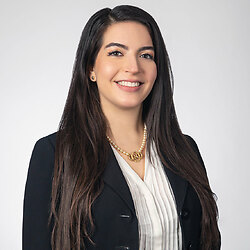Deceptive Advertising Claim Does Not Allege “Covered Professional Service”
Applying Georgia law, the U.S. Court of Appeals for the Eleventh Circuit has held that an E&O policy issued to a medical practice did not respond to a claim alleging violations of a state unfair and deceptive trade practices statute because the claim did not allege wrongdoing in connection with a “covered professional service.” Elite Integrated Medical, LLC v. Hiscox, Inc., 2022 WL 1740098 (11th Cir. May 31, 2022). The court also held that an exclusion for false, deceptive, or unfair trade practices provided an independent basis to preclude coverage.
The insurer issued an E&O policy to a medical practice that provided regenerative medicine products and services to patients. The policy provided specified coverage to the medical practice for claims made against the insured “alleging a negligent act, error, or omission in your professional services performed on or after the retroactive date.” The policy defined “covered professional services” as conduct “[s]olely in the performance of services as a physical medicine clinic including chiropractic, hormone therapy, neuropathy, medical and non-medical weight loss, allergy testing, durable medical equipment and/or instruction, PRP, and amniotic human tissue injections and naltrexone implants.”
A state government thereafter brought suit against the medical practice. The state alleged that the insured falsely represented that regenerative medicine products offered by the insured treated, cured, or mitigated diseases and health conditions. The suit asserted counts under the state’s unfair and deceptive trade practices statute.
The insurer denied coverage for the suit on the grounds that the state’s claim was not a claim for “covered professional services,” as well as under an exclusion precluding coverage for claims arising out of actual or alleged “false, deceptive, or unfair trade practices.”
In affirming the district court’s ruling granting the insurer’s motion to dismiss, the Eleventh Circuit held that the claim did not arise from “covered professional services,” because the claims related to the insured’s marketing and advertising conduct – not their medical services. The court also rejected the insured’s argument that the seminars constituted “instruction” as used within the policy’s definition of “covered professional services.” The court reasoned that the word “instruction,” read in the context of “durable medical equipment and/or instruction,” is limited to instruction about durable medical equipment, and not instruction on other subjects such as regenerative medicine.
Further, the court held that even if the claims could be construed as “covered professional services,” the policy’s exclusion precluding coverage in connection with claims arising from “false, deceptive or unfair trade practices” applied.


